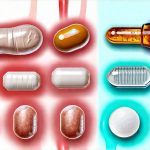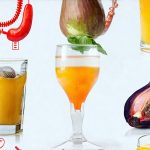Bladder reactivity, often manifesting as urgency, frequency, or even incontinence, can significantly impact quality of life. While many factors contribute to these issues—including neurological conditions, pelvic floor dysfunction, and infections—diet plays a surprisingly substantial role. Certain compounds found in beverages, particularly tannins, are known irritants for sensitive bladders. Understanding how tannins affect bladder function, and identifying low-tannin alternatives, is crucial for individuals seeking symptom management and improved comfort. This article will explore the relationship between beverage choices and bladder reactivity, focusing on options that minimize irritation and support overall bladder health, without offering medical advice, but rather providing information to discuss with a healthcare professional.
Many people associate bladder issues solely with aging or specific medical diagnoses. However, dietary sensitivity is often overlooked as a significant contributor. Tannins, naturally occurring plant compounds found in various beverages like tea, coffee, wine, and even some fruit juices, can act as bladder irritants for susceptible individuals. These compounds have astringent properties – meaning they cause tissues to contract – which can exacerbate bladder spasms and increase the sensation of urgency. The degree of sensitivity varies greatly from person to person; what triggers symptoms in one individual may not affect another. Recognizing potential dietary triggers, like high-tannin beverages, is a proactive step towards managing bladder health and improving overall well-being, always in consultation with your doctor. For further support around grocery choices, consider exploring smart grocery choices for bladder wellness.
Navigating Tea & Coffee Alternatives
Tea and coffee are staples for many, providing energy boosts and comforting rituals. However, they both contain significant levels of tannins. Black tea generally has the highest tannin content, followed by green tea and white tea (though even white tea can be problematic for highly sensitive individuals). The brewing process also influences tannin concentration; longer steeping times extract more tannins from the leaves. Coffee, especially darkly roasted varieties, is similarly rich in these compounds. Finding palatable alternatives or modifying consumption habits are essential for bladder health. If you’re looking at broader lifestyle adjustments to support your bladder, review daily restorative moments for bladder fatigue.
Fortunately, many delicious and hydrating options exist that offer a gentler experience for sensitive bladders. Herbal teas, specifically those without added black tea or coffee components, can be excellent substitutes. Chamomile, peppermint (though caution is advised as it can relax the bladder in some), ginger, rooibos (naturally low in tannins and caffeine-free) and fruit infusions are often well-tolerated. Decaffeinated options also reduce potential irritation, but remember that decaffeination doesn’t eliminate all tannins. To learn more about supportive hydration practices, explore hydration strategies for bladder support.
Beyond herbal teas, exploring alternatives like warm lemon water, chicory root coffee (a naturally caffeine-free alternative with a similar flavor profile), or even barley tea can provide satisfying beverage choices. It’s important to note that individual tolerance varies significantly; keeping a beverage diary to track symptoms and identify personal triggers is extremely helpful in refining your dietary approach. Experimenting with different options, paying attention to how your body responds, will help you discover what works best for you.
Rethinking Fruit Juices & Other Beverages
While seemingly harmless, many fruit juices contain surprising levels of tannins, particularly darker varieties like grape juice and pomegranate juice. Cranberry juice, often recommended (incorrectly) for urinary tract health, is notably high in tannins and can actually worsen bladder symptoms for some individuals. Even apple juice, though generally milder, can contribute to irritation in sensitive bladders. The acidity of fruit juices also plays a role; acidic beverages are known bladder irritants.
Water remains the gold standard for hydration and bladder health. Aiming for 6-8 glasses of water per day is crucial. Diluted squash or cordials (choose low-sugar options) can add flavor without significant tannin content, but always check ingredient lists carefully. Smoothies made with low-tannin fruits like melon, pear, or banana are generally well-tolerated, though avoid adding acidic ingredients like citrus fruits in large quantities. Prioritizing water and mindful beverage choices is paramount for managing bladder reactivity. Consider also how temperature affects your bladder; water temperature tips for minimizing bladder reactivity can offer valuable insight.
Identifying Your Personal Triggers
The key to successful dietary management of bladder reactivity lies in personalized identification of triggers. A detailed beverage diary is your best tool. Here’s how to approach it:
- Record everything you drink: Be specific about the type of beverage, quantity consumed, and time of day.
- Note any associated symptoms: Record urgency, frequency, pain, or discomfort levels after each beverage consumption. Use a simple scale (e.g., 1-5, with 1 being no symptom and 5 being severe).
- Look for patterns: After a week or two, analyze the diary to identify beverages consistently associated with symptom flare-ups. This will help pinpoint your personal triggers.
This process requires patience and diligence but provides invaluable information for making informed dietary choices. Remember that trigger foods can change over time, so periodic reevaluation of your beverage diary is beneficial.
The Role of Caffeine & Acidity
Caffeine is a well-known bladder irritant, stimulating increased urine production and potentially exacerbating urgency. While reducing caffeine intake is often recommended, the degree of sensitivity varies greatly. Some individuals can tolerate small amounts of coffee or tea without issue, while others must eliminate it entirely. Decaffeinated options are helpful but remember they still contain tannins.
Acidity also plays a significant role in bladder reactivity. Highly acidic beverages, such as citrus juices, tomato juice, and even sparkling water with lemon, can irritate the bladder lining. This doesn’t necessarily mean you have to avoid these drinks completely; moderation is key. Diluting acidic beverages with water or consuming them with food can help buffer their irritating effects. Consider pairing an acidic beverage with a bland snack to lessen its impact.
Consulting Healthcare Professionals
This article provides information about low-tannin beverage choices and dietary considerations for bladder reactivity, but it does not constitute medical advice. Always consult with your doctor or a qualified healthcare professional before making significant changes to your diet or treatment plan. They can accurately diagnose the underlying cause of your bladder issues and recommend appropriate interventions tailored to your specific needs. A urologist or pelvic floor physiotherapist may also provide valuable insights and guidance. Dietary modifications are often most effective when combined with other therapies, such as pelvic floor exercises or medication (as prescribed by a doctor). Seeking professional support is essential for achieving long-term bladder health and improved quality of life. Learning about natural tools for managing bladder reactivity can complement your healthcare provider’s advice, and understanding the role of calm may be helpful – see routine-based calm for bladder signal clarity.





















